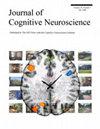元认知意识与幻觉症患者记忆的主观体验
IF 3
3区 医学
Q2 NEUROSCIENCES
引用次数: 0
摘要
幻觉症是一种非临床病症,典型特征是心理意象障碍,幻觉症患者经常报告其外显记忆减少。然而,迄今为止,研究结果主要依赖于主观的自我报告,很少有研究通过实验对象皮症患者外显记忆的客观和主观方面进行调查。在这项研究中,我们使用了一项定制的三维物体和空间记忆任务来测试象失患者记忆的两个方面,该任务操纵了视觉空间视角,而视觉空间视角被认为是决定记忆主观体验的关键因素。在不同的视角条件下,对物体和空间记忆特征的记忆表现进行了客观和主观测量。令人惊讶的是,尽管象觉受试者在记忆任务中的整体心理意象体验较弱,主观生动性评分较低,但他们在所有客观记忆测量(包括对象记忆特征的测量)中都没有受到影响。这些结果补充了新出现的证据,即象觉障碍是一种异质性疾病,一些象觉障碍患者可能缺乏对心理意象的元认知意识,而不是心理意象本身。此外,我们还发现,在以第一人称编码和检索时,两组受试者对物体记忆特征的记忆精度都高于以第三人称编码和检索时的记忆精度,这表明第一人称视角可能会通过提高场景内容的表征质量来促进主观记忆重现。本文章由计算机程序翻译,如有差异,请以英文原文为准。
Metacognitive Awareness and the Subjective Experience of Remembering in Aphantasia
Individuals with aphantasia, a nonclinical condition typically characterized by mental imagery deficits, often report reduced episodic memory. However, findings have hitherto rested largely on subjective self-reports, with few studies experimentally investigating both objective and subjective aspects of episodic memory in aphantasia. In this study, we tested both aspects of remembering in aphantasic individuals using a custom 3-D object and spatial memory task that manipulated visuospatial perspective, which is considered to be a key factor determining the subjective experience of remembering. Objective and subjective measures of memory performance were taken for both object and spatial memory features under different perspective conditions. Surprisingly, aphantasic participants were found to be unimpaired on all objective memory measures, including those for object memory features, despite reporting weaker overall mental imagery experience and lower subjective vividness ratings on the memory task. These results add to newly emerging evidence that aphantasia is a heterogenous condition, where some aphantasic individuals may lack metacognitive awareness of mental imagery rather than mental imagery itself. In addition, we found that both participant groups remembered object memory features with greater precision when encoded and retrieved in the first person versus third person, suggesting a first-person perspective might facilitate subjective memory reliving by enhancing the representational quality of scene contents.
求助全文
通过发布文献求助,成功后即可免费获取论文全文。
去求助
来源期刊
CiteScore
5.30
自引率
3.10%
发文量
151
审稿时长
3-8 weeks
期刊介绍:
Journal of Cognitive Neuroscience investigates brain–behavior interaction and promotes lively interchange among the mind sciences.

 求助内容:
求助内容: 应助结果提醒方式:
应助结果提醒方式:


